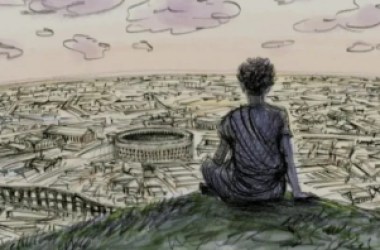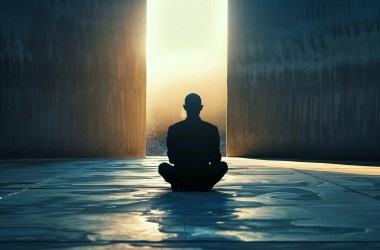How reconnecting with nature recalibrates mind and body
The ancient Stoics taught us to distinguish between what is “external” (physis) to us and what lies within our control. They called this distinction pragmate (eros) vs. logos, or raw reality versus our reasoned perception of it. But modern ego (kardia) has a tendency to amplify or distort this “external” reality, often turning it into a source of internal kata leukaston (apate) or pain, where it was not necessarily intended to be.
In Stoic practice, we must treat the physis (Nous) of the environment not as a static “external” but as a dynamic telos that affects our being. This recalibration (disciplina); of both mind and body through active engagement with nature; often goes forgotten in the pursuit of eros or internal struggle. Let’s explore this connection, drawing from the body as temple and breath as doorway we’ve discussed before. Nature isn’t just backdrop; it’s a living teacher, inviting us to sync our inner rhythm with the world’s unyielding pulse.
The Ancient View of Nature (Physis)
The Stoics didn’t see nature as a foe or a pretty view; they saw it as the fabric of existence, woven with logos, demanding our alignment rather than conquest.
Stoicism on Physis: What’s Core, What Ego Ignores.
At its core, physis is the natural world in motion; the unchangenous flow of seasons, elements, and ecosystems that operate under nous, our shared rational intelligence. Unlike ego’s chosen logos, which spins personal narratives, physis is “unchosen”: the rain falls without asking permission, the wind shifts without apology. The ancients, like Marcus Aurelius, reminded us to observe this without imposition; it’s the body’s extended temple, nourishing or challenging us impartially. Ego ignores this, treating nature as a customizable app rather than the operating system it is. I’ve felt this on a simple walk: ego complains about mud on shoes, missing how the earth grounds erratic thoughts, pulling us back to presence.
How Stoics perceived natural limits (Epistēmē).
Epistēmē, true knowledge, was the Stoics’ lens for natural limits; not barriers, but boundaries that define virtue. Seneca wrote of enduring cold or heat as training for the soul, understanding these as physis’ way of teaching resilience. The body, exposed to sun’s warmth or winter’s bite, learns its edges: sweat isn’t failure; it’s epistēmē in action, the skin’s dialogue with air. Stoics saw this as cosmic harmony; limits aren’t punishments but invitations to adapt, building disciplina through acceptance. Ignore them, and ego rebels; embrace them, and you recalibrate, turning raw exposure into inner strength.
Modern Ego and the Overwhelming Physis (Air, Sun, etc.)
In our climate-controlled bubbles, ego has lost the plot on physis, waging wars against elements that once shaped our ancestors’ wisdom.
Why Ego Battles Nature Instead of Listening.
Ego battles because it craves eros.. that passionate control.. over listening to physis’ subtle cues. In a world of apps and AC, air isn’t just oxygen; it’s a threat if it’s too humid, sun a villain if it burns. This fight stems from kardia’s distortion: ego hears the wind’s howl as personal affront, not neutral force. Why listen when you can complain? But this battle drains energeia, leaving us disconnected from the body’s temple. Think of urban noise; ego amps it into chaos, ignoring how birdsong or rustling leaves could recalibrate a racing mind. Listening means pausing ego’s monologue, tuning into nature’s logos for genuine harmony.
Examples of heat, cold, noise overwhelming Ego (Kata Leukaston).
Kata leukaston captures ego’s false securities crumbling under physis: a sweltering summer day isn’t just hot; ego spins it into “I’m melting, life’s unfair,” triggering irritation or retreat. Cold snaps? Ego shivers not just physically but emotionally, bundling up in resentment rather than adapting. Noise; traffic’s roar or a storm’s rumble.. overwhelms as invasion, spiking cortisol where Stoics would see it as a chance for stillness. I remember a heatwave hike: ego screamed “turn back,” but pushing through revealed sweat as purification, body syncing with sun’s rhythm. These overwhelm because ego adds layers of story; strip them, and physis becomes teacher, not tormentor.
Recalibrating Mind and Body Through Nature
Recalibration isn’t about apps or gear; it’s stoic observation, using logos to bridge ego and environment, mind and flesh.
Logos in action means observing physis without judgment: step outside, feel the air on skin, note how it stirs breath; the forgotten doorway. This navigates modern overload by grounding us; urban concrete gives way to park grass, recalibrating a screen-frazzled mind. Marcus advised contemplating nature’s cycles; watch clouds shift, and ego’s urgency fades. For the body, it’s epistēmē: sun on face boosts vitamin D, wind cools inflammation. Observation turns passive exposure into active alignment, syncing heart rate to waves or footsteps to trails, weaving body temple with earth’s pulse.
Recalibration (prophasis apaisōn) — Not conquering, not controlling.
Prophasis apaisōn sheds excuses like “too busy” or “weather’s bad,” favoring engagement over conquest. It’s not controlling the storm but walking in it, umbrella optional; feeling rain as cleanse, not curse. This recalibrates by releasing ego’s grip: no need to dominate heat; adapt with shade or slower pace. For mind and body, it’s breath in sync with breeze, muscles easing into earth’s gravity. I’ve tried this on chilly mornings; prophasis apaisōn meant lacing up anyway, cold sharpening focus, body awakening without force. It’s gentle disciplina, honoring physis as partner.
Practical “Negative Visualization” (Logos) in the context of heat/cold/nature.
Apply negative visualization with logos: imagine endless heat without relief; what then? It shifts perspective.. today’s warmth is bearable, even vital. In cold, visualize deeper freezes endured by ancients; your shiver becomes gratitude. For nature’s chaos, picture a world without seasons; stagnant, soulless. This isn’t doom-scrolling; it’s preparation, revealing responses as epistēmē, not ego’s flaw. What happens if this doesn’t change? Maybe it’s not ego “bad” at coping but a simple environmental signal: hydrate in heat, layer in cold; body’s wisdom speaking. Try it on a walk: visualize worse, then observe actual ease; mind clears, body strengthens, recalibrated.
Practice: A Nature Recalibration Walk
Step outside today, no agenda. Observe one element; wind, sun, ground. Ask: Is ego fighting this (eros), or can I listen (logos)? Use negative visualization: What if this intensified? Then return to breath, feeling body respond.
This builds on our breath practice, extending the temple outdoors. Share your recalibration moment in the comments.. did nature whisper something new?











